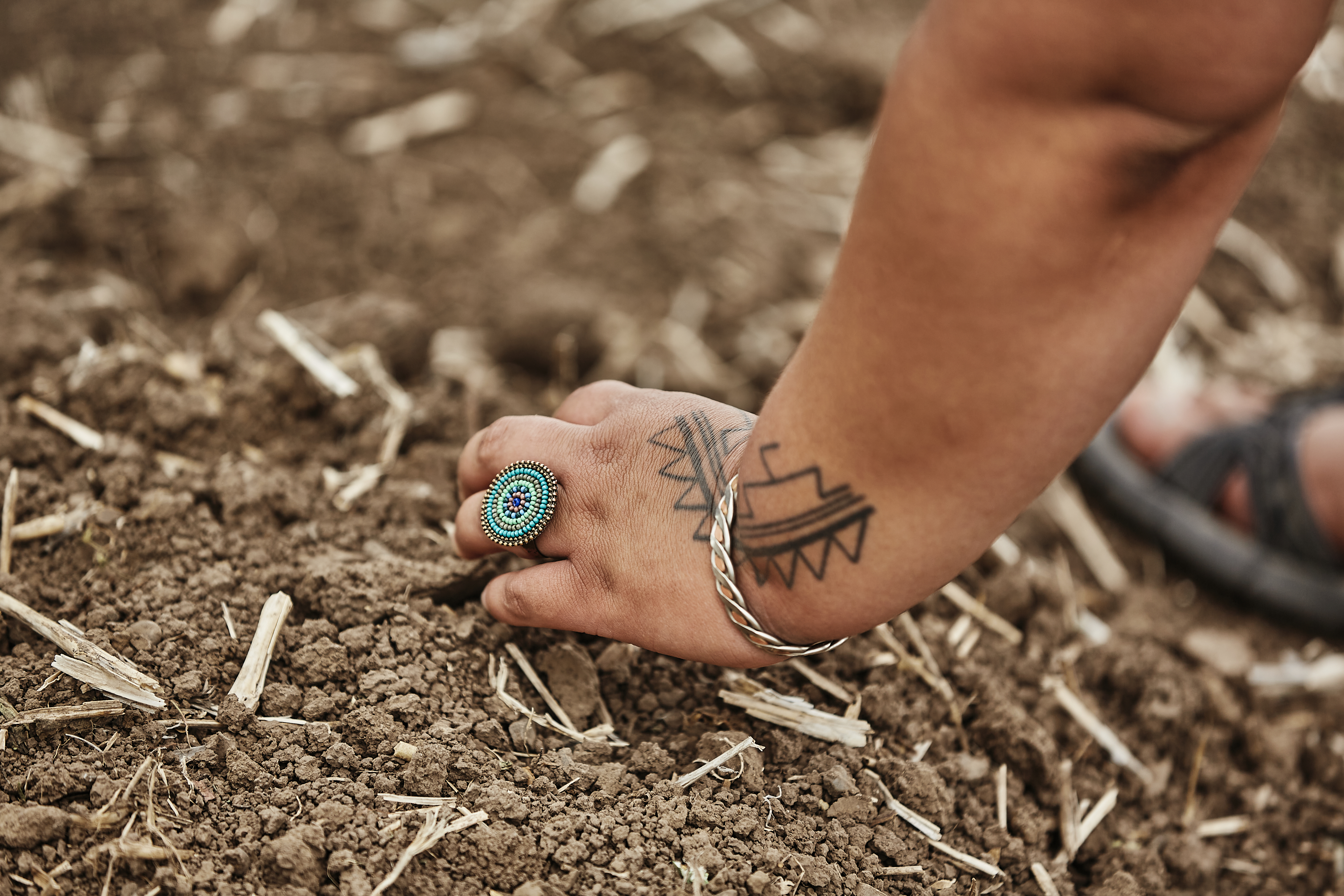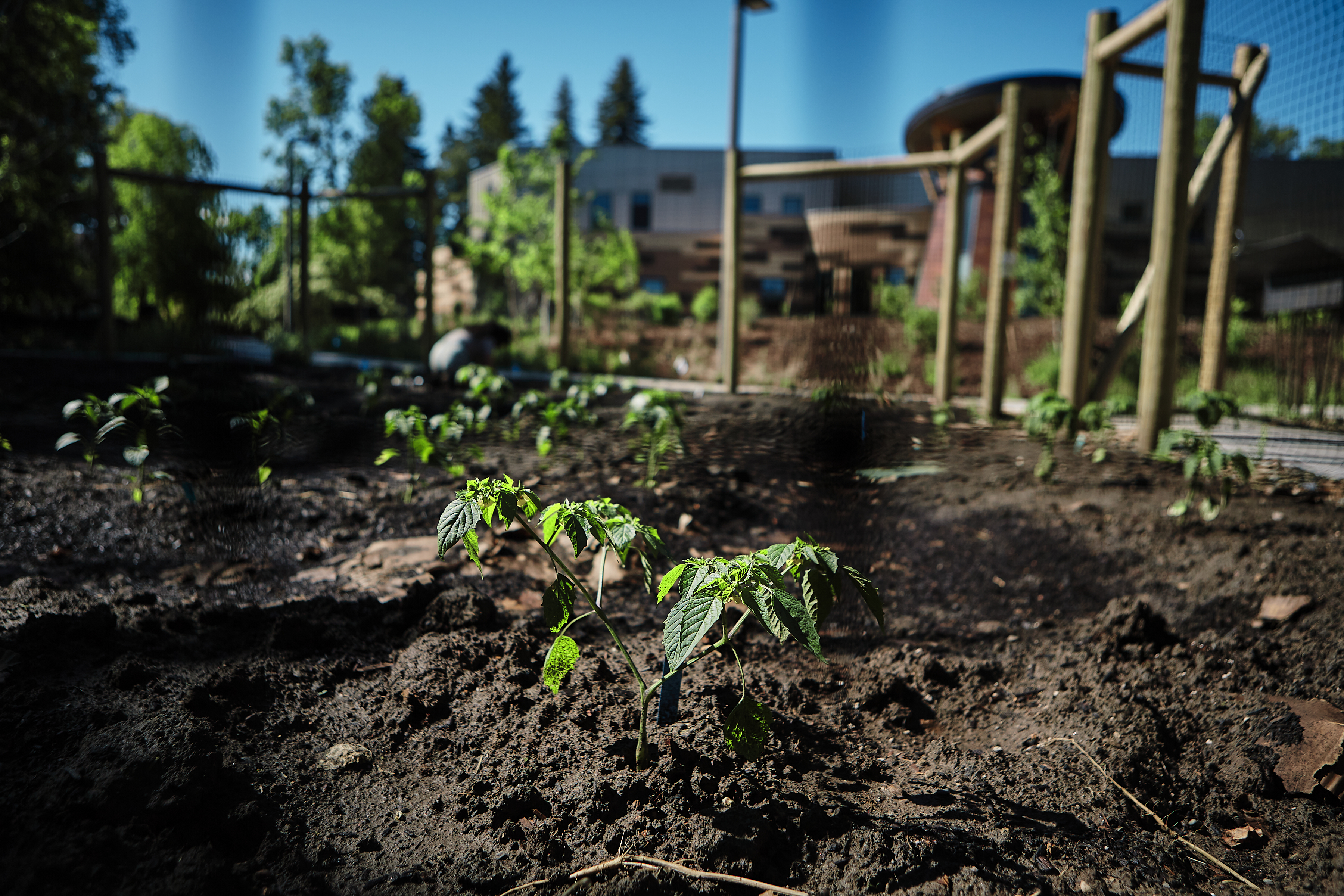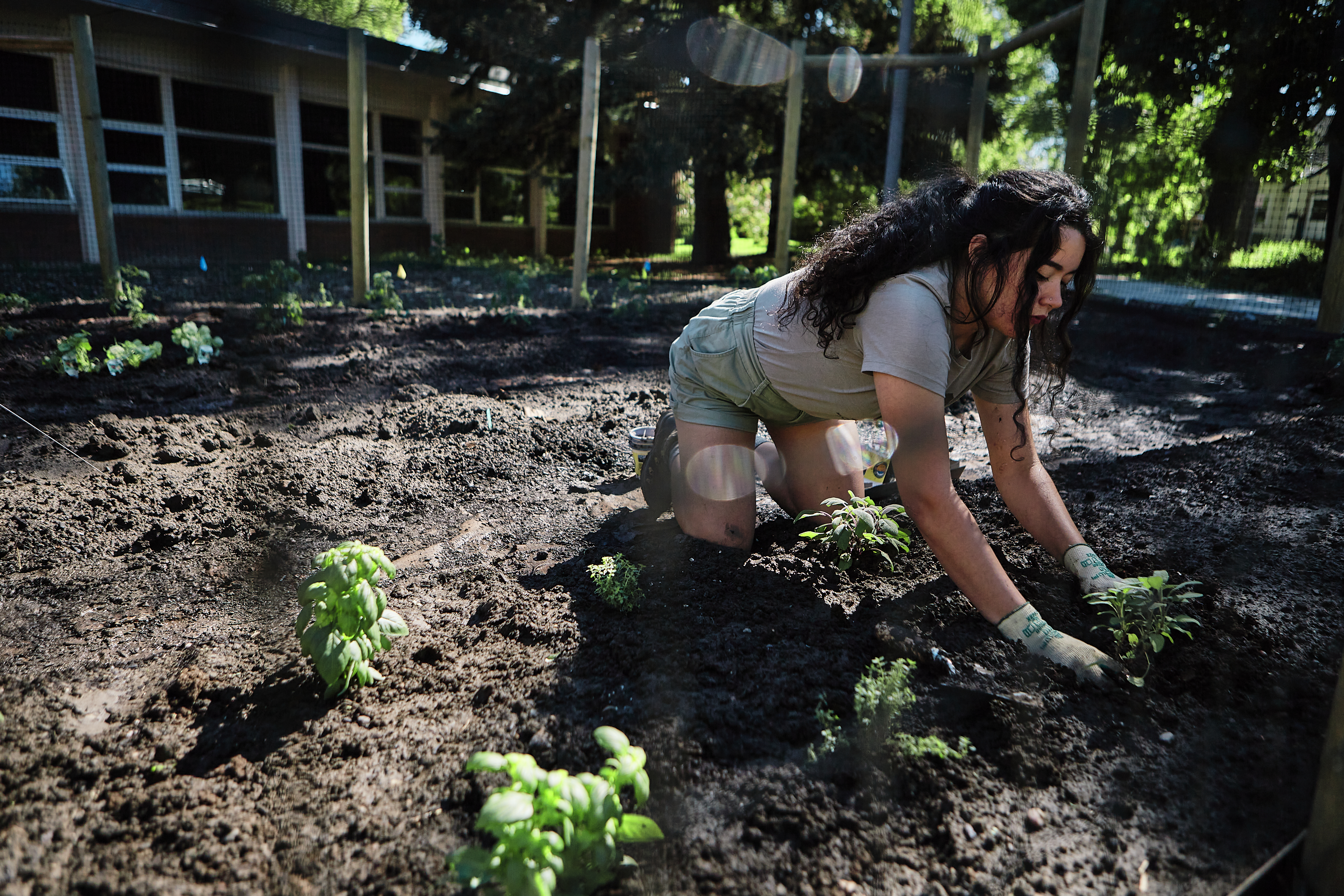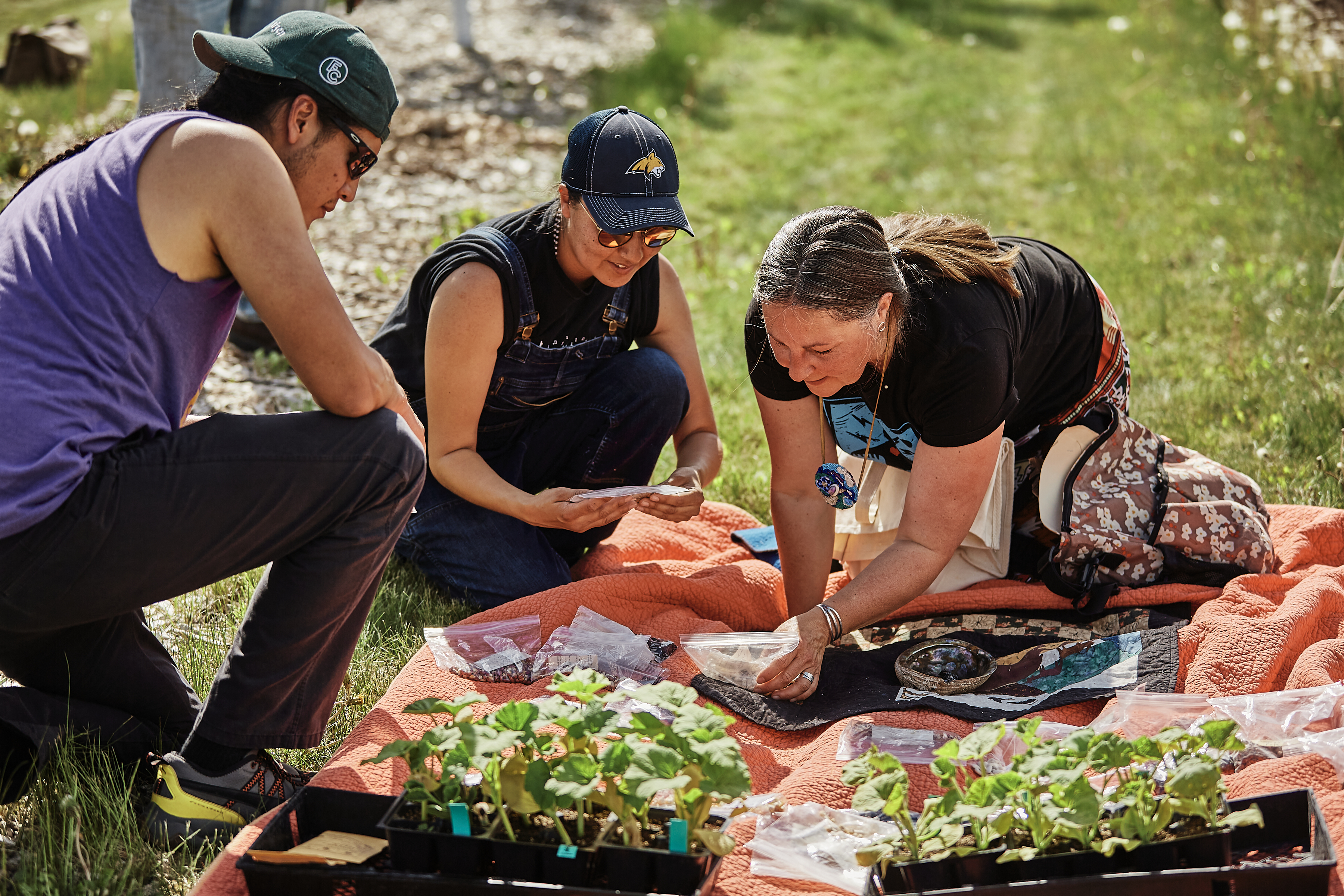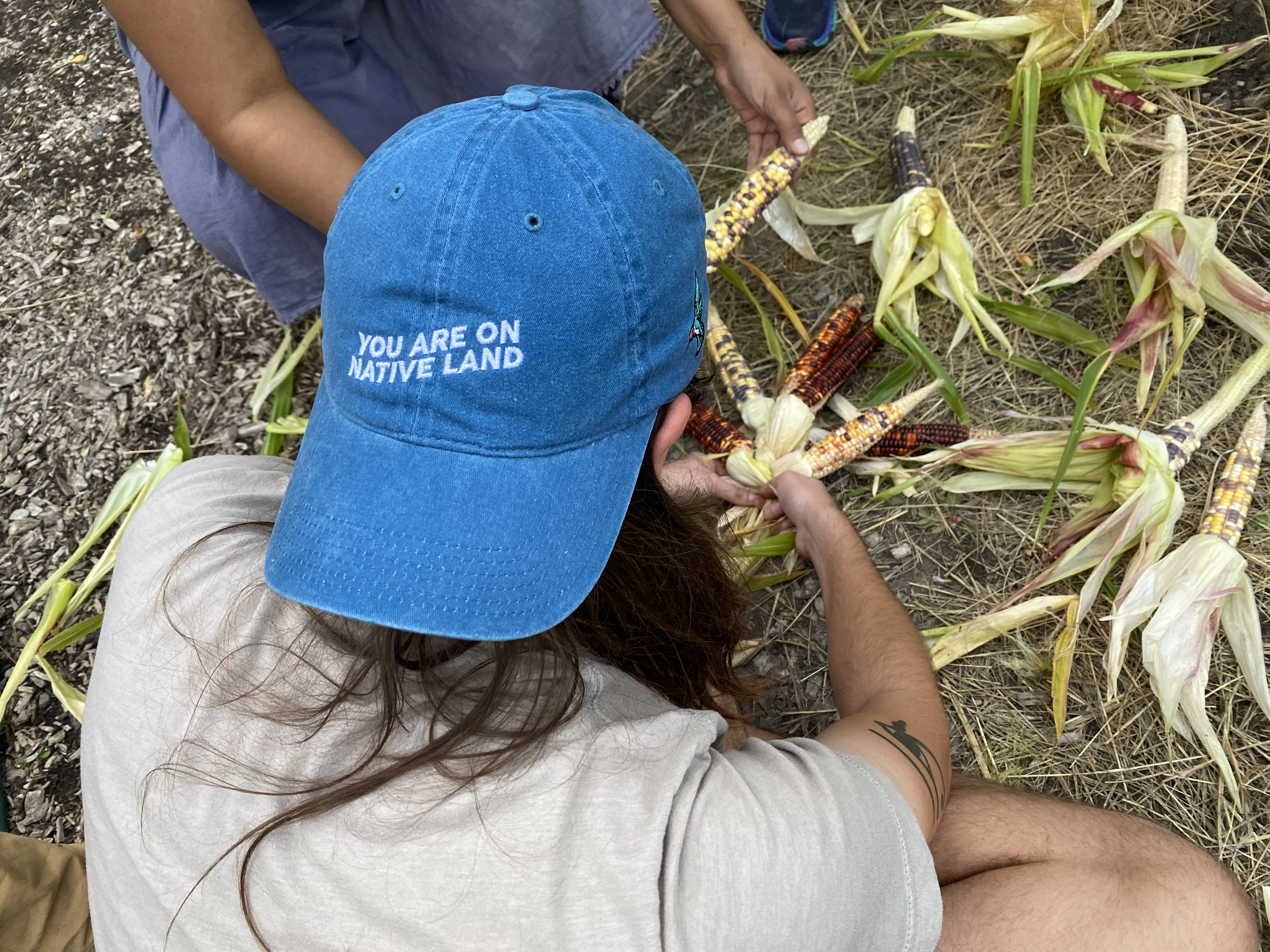Indigenous Food Systems Graduate Certificate
This program is a collaboration of the Department of Native American Studies and the College of Education, Health and Human Development.
Following the seasonal round of the Buffalo Nations Biocultural Region of the Northern Great Plains and Rockies, students will explore, through this 12-credit graduate certificate, the seasonal ecological ways of being, knowing and doing, Indigenous foodways and land practices. Working with regional and community-based knowledge holders, students will engage knowledge and relational practices in support of vital 21st century Buffalo Nation food systems.
In addition to learning from course instructors, students will ask for guidance from knowledge holders in their home communities as they engage in culturally regenerative relationships with human and other than human relatives, and the land. As a regional online learning cohort, students will share with one another as they learn from their own community work in support of mutual Buffalo food system biocultural regeneration.
This curriculum is aligned with the Buffalo Treaty, a historic Indigenous treaty amongst the buffalo nationswith buffalo renewed since 2014, to honor, recognize, and revitalize the time immemorial relationship we have with our older brother, the Buffalo.
The goal of this program is to prepare professionals in a variety of disciplines for Indigenous food systems work using Indigenous knowledge and pedagogy. Coursework themes include the buffalo culture lifeway food system, Indigenous health and nutrition, food sovereignty: policy and infrastructure, and traditional food system knowledge of plant and animal relatives; land practices, and responsibility to Buffalo.
Based on an Indigenous appreciation of the cyclical nature of life and learning (sometimes referred to as a "Seasonal Round") student cohorts will enter the program during the spring semester, completing a 6-credit course covering Indigenous practices associated with Spring and Summer. In the fall, they will enroll, again as a cohort, in a 6-credit course covering Indigenous practices associated with Fall and Winter. Students are expected to finish the Certificate in one year.
Applicants will be asked to work with community knowledge holders and mentors if possible, and therefore should identify the community they will be working within. Cohorts will be limited to 8-12 students each year.
This research was supported, in part, by the U.S. Department of Agriculture, National Institute of Food and Agriculture, NextGen, Award No. 2023-70440-40221.
Prerequisites:
Bachelor's degree and admission into the graduate Indigenous Food Systems Certificate program.
Don’t meet every single requirement? Studies have shown that women and people of color are less likely to apply for opportunities unless they meet every single requirement. Students in this program come from many disciplines and employment experiences. This certificate aims to build your capacity to do Indigenous food sovereignty work. We are dedicated to building an authentic learning cohort of diverse disciplines, so if you’re excited about this program but your past experience doesn’t align perfectly with food systems, we encourage you to apply anyway. You may be just the right student!
Courses:
This certificate program is made up of two 6-credit courses. Following the seasonal round, the first course (NASX 516) includes the seasons of Spring and Summer, and the second (NASX 517) includes Fall and Winter. Students enter the program in Spring and finish as a cohort in Winter.Students are expected to finish the Certificate in one year.
| Course | CRN | Title | Credits | Instructors |
Dates: 8-week seasons |
Synchronous Remote |
|---|---|---|---|---|---|---|
| NASX 516 | 35755 | Buffalo Food Systems: Spring & Summer | 6 |
Dr. Jill Falcon Ramaker + co-instructor TBD |
March 31, 2026-May 21, 2026
June 9, 2026 – July 30, 2026
|
*Online class meets Tuesday & Thursdays, 11:00 am - 1:00 pm MST. Attendance Require. *land-based and community-based engagement required. |
| NASX 517 | 25715 |
Buffalo Food Systems: Fall & Winter |
6 | Dr. Jill Falcon Ramaker + co-instructor TBD |
September 15, 2026-November 5, 2026 December 1, 2026 - December 10, 2026 January 12, 2026 - February 18, 2026 |
*Online class meets Tuesday & Thursdays, 11:00 am - 1:00 pm MST. Attendance Require. *land-based and community-based engagement required. |
How to Apply:
-
A Personal Statement/Statement of Purpose (2-5 pages), introducing yourself and your interest in Indigenous Food Systems, indicating your engagement goals and aspirations.
- A CV or Resume
-
One academic writing sample that demonstrates graduate level research/writing; and one academic, creative or technical (job or community-related) writing sample showing your interest in food systems work, if possible.
- Three letters of recommendation. Ideal letters of recommendation would include statements from a 1) community member and/or mentor; 2) someone who can speak to your academic history, for example, a former instructor; 3) someone who can speak to your engagement with food sovereignty work.
- Official transcript of highest university/college degree conferred
- Montana State University Graduate School application (*Application fee waiver is now available from January 26-February 9, 2026)
- International Applicants will be required to submit a variety of additional documentation including English proficiency scores (at or above) the following: TOEFL [80] IELTS [6.5], or PTE [54]. Please see the International application process for further information.
For questions and additional information, please contact Buffalo Nations Food Systems Initiative by email at
or by mail to:
College of Education Health & Human Development Department of Food Systems, Nutrition, and Kinesiology P.O. Box 172940 348 Reid Hall Montana State University; Bozeman, MT 59717Application Deadline
|
Application Submission Deadline
|
|---|
|
Rolling Admission |
Tuition and Fees:
Buffalo Nations is offering a limited number of scholarships to this program to build capacity for intertribal food sovereignty. Scholarship priority to the program is given to those engaged directly in the Indigenous food sovereignty work of their communities. Tribal college instructors/staff are encouraged to apply.
- Graduate Online Only Tuition & Fees
- Tuition, Fees, and Financial Aid
- This graduate certificate program is not eligible for FAFSA financial aid. However, program applicants may apply for a scholarship to cover course tuition and fees from Buffalo Nations.
Frequently Asked Questions:
FAQ: Graduate Certificate in Indigenous Food Systems
Q: What is the time commitment required for this program?
A: Student can expect to spend, on average, 15 hours per week on this program. Students will need to attend virtual classes, on Tuesdays and Thursdays, for 1.5 hours each class. Beyond class meetings, students should expect to spend 12 or more hours a week on homework, research & writing, community participation, time on the land, and connecting with fellow students.
Q: How do I apply to the program?
A: To apply for the graduate certificate, complete an application with the Graduate School and pay the $70 application fee. All applications are reviewed collectively, and admissions decisions will be made by March 1,2025. Students will be notified of admissions decisions no later than March 5, 2025.
Q: Can the application fee be waived?
A: Unfortunately, no, the MSU application fee cannot be waived, deferred, or refunded per the Board of Regents Policy 940.2.
Q: How do I apply for a Buffalo Nations Scholarship to this program?
A: Before applying for a scholarship, prospective students must first submit an application to the Graduate School for this program. While the application is under review, prospective students are encouraged to apply for a Buffalo Nations Scholarship here: https://www.montana.edu/ehhd/bnfsi/bn_scholarship.html. Scholarship applicants should email application requirements to buffalonations@montana.edu, and submit the online scholarship form. Applications for a Buffalo Nations Scholarship will be reviewed after all materials have been received, on a first-come first-serve basis.
Q: Can I pay for this certificate with federal financial aid?
A: No; this Graduate Certificate is not eligible for FAFSA federal student aid.
Q: Should I complete a FAFSA application for this certification?
A: Yes; even though this program is not eligible for federal student aid, completing a FAFSA application informs the students’ financial need for potential scholarship coverage and/or tuition waivers.
Q: Is this certificate program eligible for tuition waivers?
A: MSU offers two options for Native American students’ tuition waiver: 1) Montana American Indian Waiver (for Montana residents), or 2) Tribal Homeland Scholarship Waiver (for non-residents). Students who qualify for these waivers should submit required documentation to the Office of Financial Aid Services, as soon as possible.
Q: How much does this program cost?
A: Tuition, fees and rates change frequently and are based on students’ resident or non-resident status. There are specific tuition and fee rates for this certificate since it's classified as an "Online Only + Graduate" program. MSU’s Graduate School publishes a yearly Tuition & Fees Chart for Online-Only Graduate programs.
Q: Is the program open to First Nations/Canadian students?
A: Yes; prospective students of First Nations tribes may qualify to attend the program as an international student.
Q: How do I register for classes?
A: After a student is accepted to the Graduate Certificate program, Buffalo Nations staff will manually add students to the offered seasonal courses. Students must take all seasonal classes in order: Spring, Summer, Fall, Winter. These seasonal classes are listed in the MSU system as NASX 516 (Spring + Summer) and NASX 517 (Fall + Winter); students cannot take NASX 517 without completing NASX 516 as a prerequisite.
Contact the Department:
Questions regarding this Graduate Certificate may be directed to either:
Dr. Kristin Ruppel, 406-994-5261, ktruppel@montana.edu
Dr. Jill Falcon Ramaker, 406-994-6369, jillfalcon.ramaker@montana.edu

